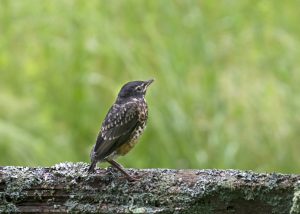6 lessons coronavirus can teach us about climate change
Earth Day 2020 comes at a tumultuous time. COVID-19 has upended our lives. The number of infections keeps soaring world-wide and entire countries are sheltering in place.
Out of caution, many are keeping physical distance from each other. But out of compassion, many are helping any way they can — staying connected by phone or internet with those who are lonely; sewing masks for desperate health care workers; making donations to groups that help migrants and the homeless; pushing for policies that protect the lowest-earning members of society.
If there was ever a time in which humanity should finally recognize that we belong to one connected family on Earth, this should be it. We share a single planet, drink from the same water and breathe the same air.

So, whether hunkered down at home or hospital, or working on the front lines, we are all doing our part to face a common enemy together. When COVID-19 is finally behind us, instead of returning to normal life, we must hold on to these lessons in the fight against climate change.
Below are 6 lessons the coronavirus pandemic can teach us about our response to climate change.
- Science matters
We can save lives by funding, accessing and understanding the best science available. The science on climate change has been clear for decades, but we’ve failed in communicating the danger to the public, leading to slow action and widespread denial of the facts.
- How we treat the natural world affects our well-being.
The loss of habitat and biodiversity creates conditions for lethal new viruses and diseases like COVID-19 to spill into human communities. And if we continue to destroy our lands, we also deplete our resources and damage our agricultural systems.
- The sooner we mobilize for action, the less suffering will take place.
Quick and drastic action can flatten the curve for coronavirus and free up healthcare resources, lowering death rates. Similarly, drastic action on climate change could reduce food and water shortages, natural disasters and sea level rise, protecting countless individuals and communities.
- We have the ability to make drastic changes very quickly.
When sufficiently motivated, we can suspend business as usual to help each other. All over the world, healthy people are changing their lifestyles to protect the more vulnerable people in their communities. Similar dedication for climate change could transform our energy consumption immediately. All of us can make a difference and play an important role in the solution.
- All of us are vulnerable to crisis, though unequally.

Those with underlying social, economic or physical vulnerabilities will suffer most. A society burdened with social and economic inequality is more likely to fall apart in a crisis. We must also recognize that industries and people who profit from an unjust status quo will try to interrupt the social transformation that a crisis requires.
- Holding on to a vision of a just, peaceful and sustainable Earth will give us strength for the future.
Earth Day 2020 will be remembered as a time when humanity was reeling from a pandemic. But we pray that this year will also be remembered as a time when we all were suddenly forced to stop what we were doing, pay attention to one another and take action.
Business as usual — digging up fossil fuels, cutting down forests and sacrificing the planet’s health for profit, convenience and consumption — is driving catastrophic climate change. It’s time to abandon this destructive system and find sustainable ways to inhabit our planet.
What would it look like if we emerged from this pandemic with a fierce new commitment to take care of each other? What would it look like to absorb the lessons of pandemic and to fight for a world in which everyone can thrive?
On this 50th anniversary of Earth Day, as fear and illness sweep the globe, we listen for voices that speak of wisdom, generosity, courage and hope. And as always, we find solace in the natural world. In the suddenly quiet streets and skies, we can hear birds sing.
——————————————————————————————————————————————
This essay was co-written by Margaret Bullitt-Jonas and Leah D. Schade, co-editors of the book Rooted and Rising: Voices of Courage in a Time of Climate Crisis (Rowman & Littlefield, 2019), an anthology of essays from religious environmental activists on finding the spiritual wisdom for facing the difficult days ahead. This essay was published by Earth Day Network on March 25, 2020.

5 Responses to “6 lessons coronavirus can teach us about climate change ”
Tom Carr
Excellent Margaret – thank you!
Stephen Brown
Many thanks. We live in Tucson and attend Grace St. Paul’s Episcopal church where we have a strong and vibrant creation spirituality focus. We lived for many years in New England, where we were active in ecological sustainability.
mbj
Thanks for reading and commenting. As you know, I preached at Grace St. Paul’s last month — it is one of my very favorite places to worship. You are blessed!
Lisa Baird
Thank you Reverend Margaret for sharing your wisdom and love of nature with us!
I’m so thankful I saw you on the weather channel this morning. I’m definitely going to follow your posts and buying your book.
Would love to hear your sermons in person but I live in Texas!
God bless you!
mbj
Thank you so much, Lisa, for watching The Weather Channel this morning and for tracking me down. I appreciate your words of encouragement and support. Keep the faith in Texas! We need people like you who care about the natural world! I’m sending you blessings across the miles.